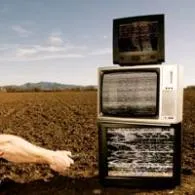Public Broadcasting
Written by

News that funding for TVNZ 7 will be discontinued and parliament’s recent decision to scrap the TVNZ Charter, has raised concerns about the government’s future commitment to public broadcasting.
Reinventing Public Broadcasting will be discussed by a panel and live online audience at the final session of the Unitec Forum for the Future 2011 on Thursday.
This session is being hosted by Unitec’s Department of Communication Studies and facilitated by business commentator and journalist Rod Oram.
Panellists include multi-award winning broadcaster Sean Plunket; media commentator and television presenter, Russell Brown; Broadcast Manager of community access radio, Planet FM, Terri Byrne; former editor of the NZ Listener, TVNZ current affairs presenter and Chairman of NZ on Air, David Beatson; and Senior Lecturer in Media Studies at Victoria University and broadcasting researcher, Dr Peter Thompson.
Head of Unitec’s Department of Communication Studies, Dr Jocelyn Williams says, “News that funding for TVNZ 7 is to be discontinued, and the passing through Parliament of the third reading of the bill to amend the TVNZ Act, ending the TVNZ Charter, raises real concerns about the government’s commitment to public broadcasting values.”
“Most developed countries ensure that the public has access to non-commercial broadcast content because it helps create a better informed society, and they protect this access by ensuring funding arrangements that don’t require an unrealistic emphasis on commercial revenue,” she says.
“Strong communities and national and cultural identity depend on people having access to a range of programming that gives them a voice, and tells their stories,” says Williams.
“Successive government decisions in recent years have continued to undermine the ability of New Zealand radio and television to provide impartial, in-depth and independent news, current affairs, and local programme content.”
The topic Reinventing Public Broadcasting will be tackled in a lively 90-minute panel-style debate bringing together media practitioners and experts from a variety of backgrounds, media academics and students together in a live audience. What makes the Unitec Forum for the Future different is that the debate transcends the bounds of geography.
Through live streaming the debate goes national and internet viewers around the country will have the opportunity to interact with each session of the Unitec Forum for the Future, via Twitter (@UnitecNZ and #UnitecFTF) email and web cam (using Skype).
Or be part of the audience at Unitec’s Mt Albert campus this Thursday evening, August 11 starting at 6.30pm.
Further information:
Unitec Institute of Technology began its Unitec Forum for the Future series in October 2009. As host of this forum, Unitec recognizes the value of intelligent and rigorous discussion of the critical issues that affect this country, says Executive Dean of the Faculty of Creative Industries and Business, Leon Fourie. “The themes we select should stimulate ideas that, we hope, contribute to a vital and thinking democracy, and an innovative and prosperous economy.”
Series MC Rod Oram says, “I am delighted to be involved with the Unitec Forum for the Future again. The format is the best for generating public engagement that I have experienced so I welcome the opportunity to deepen people’s involvement as we explore these crucial issues in our third series.”
“The Unitec Forum for the Future series has to date achieved in-depth discussions with knowledgeable panellists and very engaged audiences both in the studio and through connecting with an online audience,” he says.
“The aim of the series is to involve a wider community in the issues, giving people the chance to contribute their knowledge while learning from others,” says Oram.
“Each of the sessions is long enough and well-constructed to generate participation. Panellists and the audiences have the chance to focus on these issues important to New Zealand and to properly debate and explore them.”